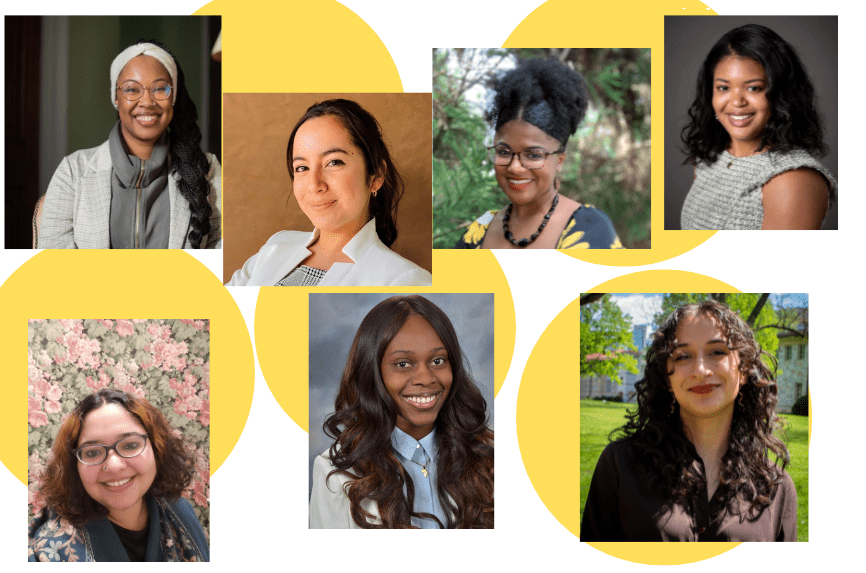Hastings Center News
Hastings Center Welcomes 2024-2025 Sadler Scholars
The Hastings Center has selected seven doctoral students in the fields of neuroscience, human genetics, sociology, global health, and health policy as the 2024-2025 Sadler Scholars.
The Sadler Scholar initiative, launched in 2021, builds scholarly and professional community among early-career researchers who are from racial or ethnic groups underrepresented in disciplines relevant to bioethics. To date, 28 Sadler Scholars have taken part in this growing network of next-generation researchers, practitioners, policymakers, and advocates.
During their cohort year, each Sadler Scholar gives a work-in-progress talk for feedback from Hastings Center staff scholars and editors, advisors, and the Sadler Scholar community. Workshops on career development, publication, and professional flourishing are also part of the cohort year. All Sadler Scholars have access to one-on-one mentoring sessions with advisors and Hastings Center colleagues, and to Hastings Center events such as an invited speaker series. A stipend provided during the cohort year can be used for in-person conference participation or other activities selected by individual Sadler Scholars.
Stipends for Sadler Scholars are provided by the Blair and Georgia Sadler Fund for Socially Just Health Policy, which aims to cultivate a more diverse set of scholars committed to creating a more equitable world. The Sadler Fund also supports expert advisors to this initiative, which was founded by Hastings Center senior research scholar Nancy Berlinger in close collaboration with advisors Keisha Ray, associate professor at the McGovern Center for Humanities & Ethics at UT Health Houston, and Jalayne Arias, JD, associate professor of health policy & behavioral sciences in the School of Public Health at Georgia State University. Hastings Center research scholar Virginia Brown recently became an advisor to the initiative.
“This is a remarkable cohort–two neuroscientists, a computational geneticist, a Rhodes Scholar, a researcher studying the intersection of machine learning and digital health technologies, two social scientists doing global health research,” says Berlinger. “There are so many connections to explore over the year ahead as these amazing women begin their careers and contribute to bioethics research, practice, and policy. It’s a privilege to work with this community as part of The Hastings Center’s service to our field.”
Sadler Scholars are chosen through a competitive application process. Applications for the 2025-26 cohort will open in early 2025.

